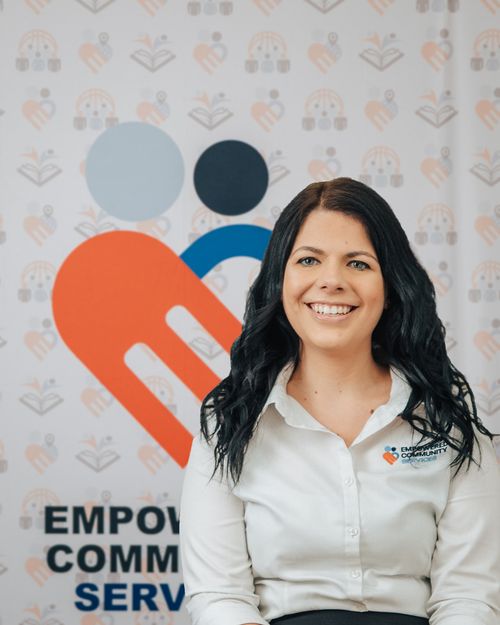Remuneration for Support Coordination varies greatly! In this blog I will be discussing employees, sub-contractors and sole traders.
Preface
I want to preface this blog by stating that often Support Coordination is discussed as ‘limited’ or being ‘taken away’ by the NDIS.
Yes, Support Coordination is a limited support designed to build capacity, however I believe that a form of Support Coordination will always be funded in the future.
Participants require support and the NDIS is much too complicated to not have a funded support in place to assist with the navigation of the NDIS. Whilst this role can fluctuate with wages, the satisfaction of working and assisting others is something that you cannot put a price on.
Currently (in the Hunter/Newcastle region) there are 82 jobs listed on Seek.com.au. This shows a huge need for Support Coordinators and huge growth in companies providing this service. When looking through these listings, the average hourly rate is $35 per hour.
As a Support Coordination Manager, I have been involved in the recruitment and onboarding of new Support Coordinators. Factors that I consider when determining the new employees wage include experience, networking abilities and qualifications.
Typically, Support Coordinators are paid under the SCHADS award. This can vary depending on the provider that you are working for or existing Enterprise Agreements etc. SCHADS information can be located here: https://www.fairwork.gov.au/newsroom/news/1-july-2022-changes-social-community-home-care-and-disability-services-award
Pay Based on Levels of Experience
A new Support Coordinator with no experience, limited networks and no qualifications should expect to enter the role on a starting wage of around SCHADS 3.1.
Experienced Support Coordinators will be in the rage of SCHADS 4.1 – 4.4. Experienced Support Coordinators can work independently, maintain their caseload and achieve KPI’s.
Managers/Team Leaders with demonstrated abilities to lead a team, networking resulting in new business and hold relevant qualifications will be in the range of SCHADS 5.1 – 5.4.
Employees
This is the most common form of employment for Support Coordinators. This is the type of employment that I have the most experience with.
Being employed directly by a Provider allows for stability with wages, hours, tax and superannuation. Providers are generally required to be registered with the NDIS and have regular audit processes to ensure that the standard of business is kept high. Keep in mind that the registration process and audit costs are substantial and complex – certainly not something that I would take lightly!
Read more about how much it costs to get registered here
As an employee, you are able to work with NDIA managed, plan managed and self-managed Participants. When working for a provider, your caseload will often be allocated to you. You will also have KPI’s and a supervisor that ensures billable time is reasonable and necessary.
Providers will pay their employees the agreed rate whilst using the remainder of the revenue from Support Coordination for other business costs.
Side note: The hourly rate for Support Coordination under the NDIS has not increased during the last few price guides however the cost of living/expenses continue to soar!
When looking for a position; Providers can offer additional benefits such as flexible hours, working from home, RDOs, pool cars, performance bonuses and company culture. Be sure to discuss these at your interview to determine whether it is the best company for you, your values and your personal situation. Typically, salary is also determined by whether the company offers any of the above benefits. Non for profit providers can also offer a range of salary packaging options which reduces your taxable income.
Sub-contractors
Sub-contractors typically contract through a provider with existing NDIS registration. This set up allows the sub-contractor to claim NDIA managed Participant funding without registering themselves.
Sub-contractors will have their own ABN and pay their own taxes/super etc.
Sub-contractors have greater flexibility with their income as they will often negotiate directly with the provider. Typically, the provider will take a percentage of the income as a fee for providing registration and time taken to claim Participant funding. A sub-contractor is responsible for sourcing their own caseload and ensuring that their billed time is reasonable and necessary.
When sub-contracting through a company, the Support Coordinator is only paid for their billable time. Administration, documentation and other costs of business are at the sub-contractor’s expense.
As a sub-contractor, you are able to work with NDIA managed, plan managed and self-managed Participants (provided that the company you are contracted to is registered).
This style of employment can result in a greater hourly rate however has an increased amount of risk to yourself and pressure on you to perform each week and have the ability to complete taxes and other financials.
Sole Traders
Be your own boss! As a sole trader you are responsible for the running of your business. All aspects including registration (should you choose to register), payroll, policy and audits are your responsibility.
This form of employment offers the greatest flexibility as you are able to determine which Participants you work with, how often you work and how you claim.
I have considered this form of employment many times in the past, however I am not a businesswoman and the risk for myself was not something I was comfortable. I have so much respect for those that take the dive into the world of business whilst performing all other aspects of Support Coordination.
Click here to learn more about becoming a Support Coordinator.
How are you employed? Do you prefer one form over another? I would love to hear your experience with each of the above!

